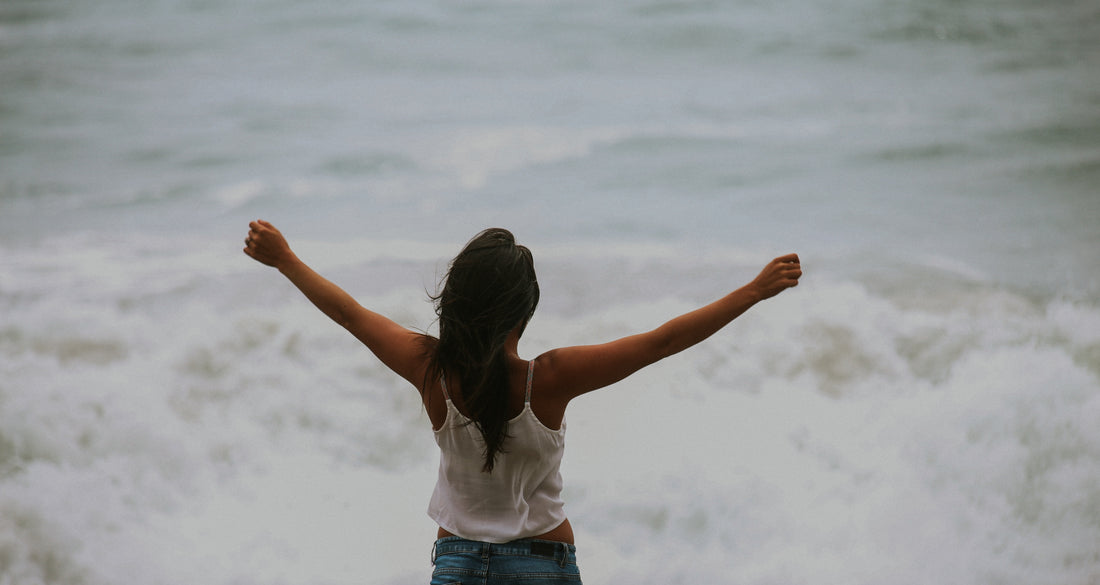Think about the last time you were on vacation. Seriously. Put your phone down and take a minute to reflect. Do you remember the moment? We're talking about the moment when you finally settled into a vacation mindset, and the thoughts of everyday life began slipping away. Maybe you were lounging on a beach when it happened. Perhaps you were walking in the woods or swaying gently in a hammock. These moments, when the stress of our lives is shuttled off to the side, ignite a mental and physical shift within us. These moments remind us that we are much more than the daily output of our lives. These moments offer insight into how much stress we might be carrying around with us. And lastly, these moments remind us just how beneficial vacations are to our daily lives.
The Benefits of Vacations
With deadlines to meet and responsibilities to uphold, most adults experience an increase in cortisol levels, the stress hormone, by age 20. At 20 years old, our young and endlessly vital existences can handle the increased cortisol levels by moving cortisol around or reabsorbing it. At that age, our bodies are like “excess stress hormones? No problem.” But as we age, we lose this compensation mechanism. The result? Weight gain, decreased ability to deal with stressful situations, anxiety, insomnia, blood sugar issues and more.
But don't let those statistics get you down. With some practice, rest and relaxation, we can actually reset our dysregulated nervous systems. That's right, we can train our bodies out of an excessive cortisol habit. This is where the benefits of vacation come in. We all know that we feel pretty incredible while on vacation. But what is it about vacations that cause us to feel so damn good? Vacations can improve sleep cycles, decrease cortisol levels and increase neuroplasticity. Unfortunately, most of us can’t go on vacation once a month to reset. So how can we bring these life-changing vacation vibes into our daily lives? The first step is creating daily and weekly rituals that bring productivity to our days and health to our bodies and minds. When we practice shifting from a cortisol-driven mindset of go-go-go to a slower and rejuvenating pace of ah-ah-ah, we can create incredible shifts in our lives. Here are a few weekly and daily practices to help you strengthen your vacation brain.
Play (One Hour)
Let’s face it, as adults we don’t get much playtime. When you build play dates into your schedule, you decrease stress, increase neurogenesis and stimulate creativity. Try breaking out the board games, signing up for a day at the paintball park, joining a frisbee golf league, or any other version of play that lights up your soul. Try scheduling one hour of playtime several days per week.
Unplug (One hour)
Take a one-hour break from electronics every day. According to UW Health, adults frequently spend more time behind a screen than they do sleeping. If this statistic sounds shocking to you, start scheduling a daily tech break. When we are on vacation, we are often in the moment without even trying. We're sampling new foods, seeing new places and meeting new people, all without any screens. Technology detoxes are a great way to bring this benefit of vacation into your daily life. If you need screens to work, use your lunch break as your electronics respite. The tech breaks can improve mental health, promote calm and increase focus.
Let Your Mind Wander (30 Minutes)
As kids, we are rarely encouraged to daydream. In fact, we're often discouraged from it altogether and instead told to focus on finishing tasks and being productive. However, the simple act of letting your mind wander can do wonders for mental clarity and focus. Daydreaming has been shown to improve problem-solving skills, increase creativity, and reduce stress and anxiety. You know how your mind drifts off when you're lounging on a beach chair in the Bahamas? You can get that same vacation feeling by incorporating a mind-wandering practice into your week. Start by finding a park bench or other area outside and simply letting your eyes and mind go wherever they dare to journey. Stay this way for 30 minutes and notice how you feel after.
Create Space for Decompression (15 Minutes)
Vacation is often one wonderfully long decompression experience. And you can create the same effect with this 15-minute daily activity. Simply choose an activity that makes you feel good and do it for 15 minutes every day. For some, this might be exercise or meditation. For others, this decompression activity could involve simply drinking tea. Don't just participate in the activity during your decompression time; notice all the sensations involved in the practice. If you're drinking tea, notice how the scents and the feeling of the warm cup in your hand enliven your senses. If you're meditating, notice the way your breath transforms you. If you're exercising, notice how rejuvenating a good sweat can feel. These daily 15 minutes are your sacred time to slip into vacation joy.
Give some of these practices a try and see if you can work the benefits of vacations into your daily life.
Dr. JJ Pursell is a compassionate leader who has dedicated her life to helping others. She is a writer, entrepreneur, advocate, and ND physician that specializes in plant medicine. Fueled with good tea and world travel, she strives to connect communities and encourages us to find the best in others.
Photo by Ryan Moreno on Unsplash
Read More: Wall-Gazing and Other Workday Breaks You Should Be Taking
Read More: How and When to Take a Nap
Listen: Your New Rest Ritual: Dreamwork




